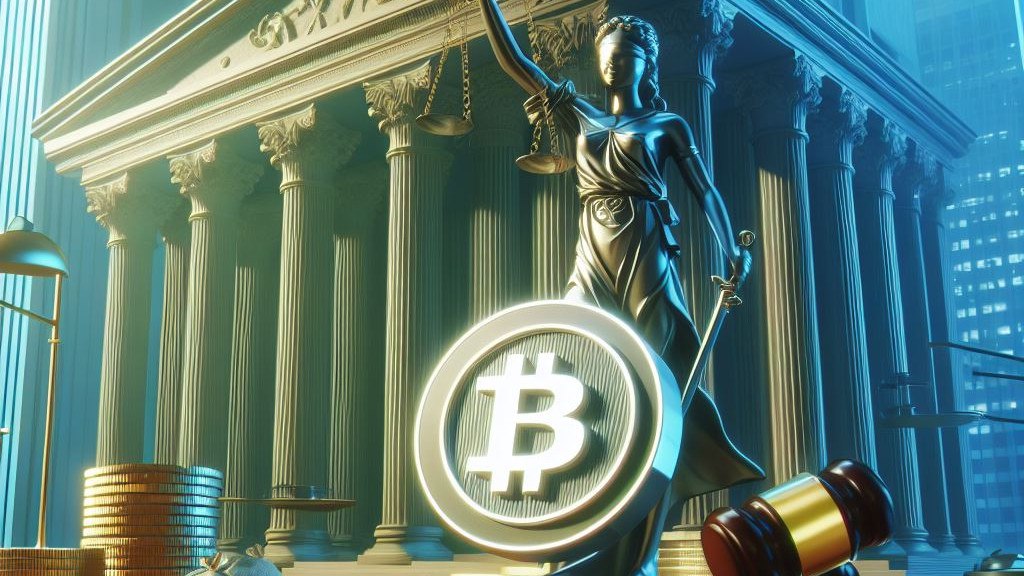US Federal Judge Rules Against Terraform Labs Founder Do Kwon, Cites Violation of Law

In Brief
U.S. District Judge ruled that Do Kwon and Terraform Labs breached U.S. law by not registering two digital currencies that collapsed in 2022.

In a landmark decision, U.S. District Judge Jed Rakoff ruled that crypto entrepreneur Do Kwon, along with his company Terraform Labs, breached U.S. law by neglecting to register two digital currencies that faced a catastrophic collapse in 2022.
Judge Rakoff sided with the Securities and Exchange Commission (SEC) in the aftermath of the TerraUSD and Luna currencies’ implosion, highlighting a failure to comply with regulatory requirements.
Rakoff’s decision encompassed a denial of summary judgment for both parties concerning the SEC’s fraud claims. The case is slated to proceed to trial on January 29, 2024. However, the judge dismissed SEC allegations that the defendants engaged in the illegal offering of security-based swaps.
Despite the adverse ruling, a Terraform expressed strong disagreement with the decision. The company maintains that its tokens were not securities and affirmed its commitment to vigorously defending against what it deems as the SEC’s “meritless” fraud claims during the upcoming trial.
South Korea native Do Kwon, who faces fraud charges from U.S. prosecutors in Manhattan, has been resisting extradition from Montenegro, where authorities arrested him in March, just hours before criminal fraud charges were formally announced.
The Collapse of Terraform Labs
Kwon, the architect behind TerraUSD, a Stablecoin designed to maintain a constant $1 value, and Luna, a more traditional token with fluctuating value closely linked to TerraUSD, saw both cryptocurrencies lose an estimated $40 billion or more when TerraUSD failed to sustain its $1 peg in May 2022.
The collapse of TerraUSD and Luna also had a ripple effect, impacting the value of other cryptocurrencies, including Bitcoin.
The SEC’s contention is centered on the claim that four of the defendants’ crypto assets, including TerraUSD and Luna, were unregistered securities qualifying as “investment contracts.” The regulatory body further accused Terraform and Kwon of repeatedly misleading investors about the stability of TerraUSD, including claims of potential value appreciation.
This passage highlights the key difference between the Terraform Labs case and the @Ripple case:
— Eleanor Terrett (@EleanorTerrett) December 29, 2023
“But, beginning in March 2021, holders of UST could deposit their tokens in the Anchor Protocol, which defendants’ efforts developed and which Kwon himself publicly announced would… https://t.co/1PGssY5ZAu
In a 71-page decision, Judge Rakoff emphasized that there was “no genuine dispute” regarding the classification of the four crypto assets as securities, citing a 1946 U.S. Supreme Court decision, SEC v WJ Howey Co, which defined investment contracts. The court ruled that an investment of money in a common enterprise, with profits solely derived from others’ efforts, constituted an investment contract.
While Rakoff acknowledged this, he also noted that reasonable jurors could differ on whether the defendants intended to defraud investors in multiple statements about Terraform’s business. These statements included references to TerraUSD’s temporary failure in May 2021 to maintain its $1 peg and how a popular Korean mobile payment app used the Terraform blockchain to settle transactions, supporting Luna’s value.
The judge clarified that the SEC’s remedies for the sale of unregistered securities would be determined once the defendants’ liability on the fraud claims is resolved.
The cryptocurrency industry vehemently denies that its tokens qualify as securities. In a noteworthy victory in July, another judge in the Manhattan federal court ruled that certain tokens sold by Ripple Labs did not qualify as securities.
Disclaimer
In line with the Trust Project guidelines, please note that the information provided on this page is not intended to be and should not be interpreted as legal, tax, investment, financial, or any other form of advice. It is important to only invest what you can afford to lose and to seek independent financial advice if you have any doubts. For further information, we suggest referring to the terms and conditions as well as the help and support pages provided by the issuer or advertiser. MetaversePost is committed to accurate, unbiased reporting, but market conditions are subject to change without notice.About The Author
Victor is a Managing Tech Editor/Writer at Metaverse Post and covers artificial intelligence, crypto, data science, metaverse and cybersecurity within the enterprise realm. He boasts half a decade of media and AI experience working at well-known media outlets such as VentureBeat, DatatechVibe and Analytics India Magazine. Being a Media Mentor at prestigious universities including the Oxford and USC and with a Master's degree in data science and analytics, Victor is deeply committed to staying abreast of emerging trends. He offers readers the latest and most insightful narratives from the Tech and Web3 landscape.
More articles

Victor is a Managing Tech Editor/Writer at Metaverse Post and covers artificial intelligence, crypto, data science, metaverse and cybersecurity within the enterprise realm. He boasts half a decade of media and AI experience working at well-known media outlets such as VentureBeat, DatatechVibe and Analytics India Magazine. Being a Media Mentor at prestigious universities including the Oxford and USC and with a Master's degree in data science and analytics, Victor is deeply committed to staying abreast of emerging trends. He offers readers the latest and most insightful narratives from the Tech and Web3 landscape.





















































